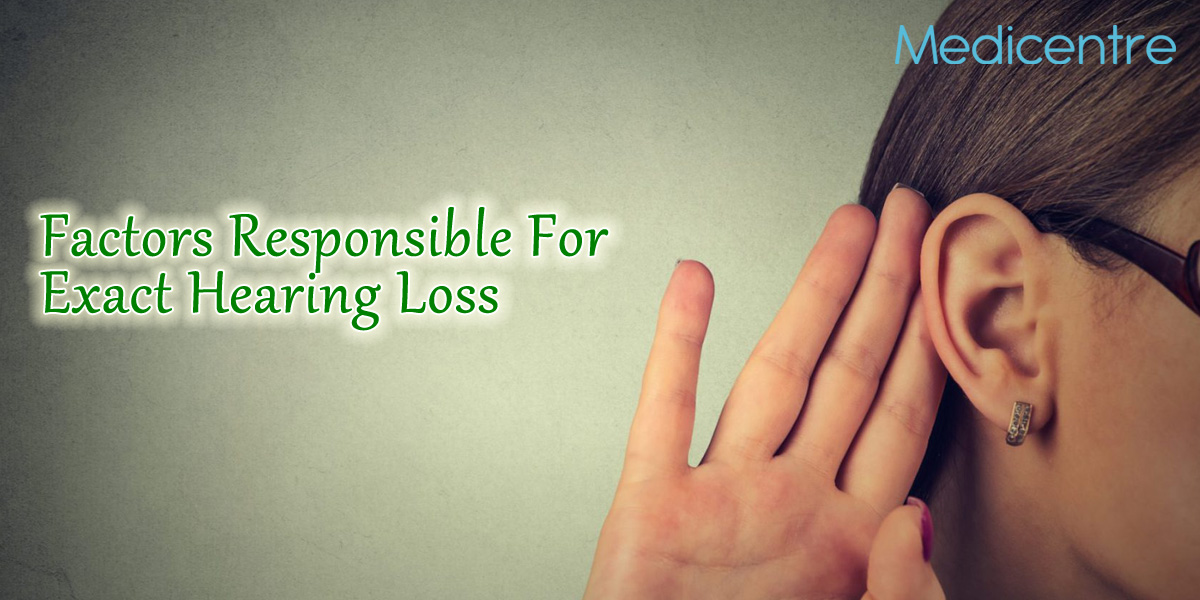Factors responsible for exact hearing loss
Hearing loss is a very common sensory problem that usually develops with aging or due to chronic exposure to loud noises. Hearing loss may have an important effect on your quality of life. Elder people with hearing loss may complain about feelings of depression. Because hearing loss makes conversation difficult, and some people feel isolated. Hearing loss can be of three types known as conductive which includes outer or middle ear, sensorineural that involves inner ear and mixed which is a combination of two.

Causes of hearing loss include:
Damage to the inner ear:Aging and exposure to loud sounds can cause wear and tear on the hairs or nerve cells in the cochlea that are responsible to send sound signals to the brain. Damaged or missing nerve cells can’t transmit electrical signals efficiently and hearing loss occurs.
Earwax: Earwax buildup can block the ear canal and stop conduction of sound waves.
Ruptured eardrum: Loud blasts of sound, abrupt changes in pressure, pushing your eardrum with an object and infection may rupture your eardrum and influence your hearing.
Ear infection and tumors or abnormal bone growths: Any of both the conditions can cause hearing loss in the outer or middle ear.
Factors influencing hearing loss may include:
Aging: Deterioration of inner ear structures occurs with aging.
Loud sounds: Loud sounds may damage the cells of your inner ear. Damage may occur with prolonged exposure to loud noises, or from a short blast of noise, like from a gunshot.
Genetics: Your genetic factor may make you more vulnerable to ear damage from sound or deterioration from aging.
Work-related noises: Work, where loud noise is a usual part of the working environment, like farming, factory job or construction work, may lead to damage inside your ear.
Certain medicines: medicines like some antibiotics and certain chemotherapy medicines, may damage the inner ear. Temporary hearing loss or tinnitus may occur due to high doses of certain painkillers, quinine, or aspirin.
Some diseases: Diseases that cause high fever, like meningitis, can damage the cochlea.